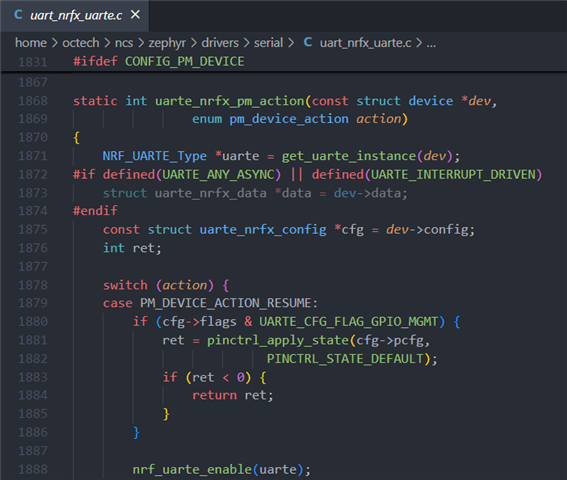Hello,
I have multiple UART devices connected to various pins on my nRF5340, but due to hardware limitations, I can only use two UARTs concurrently alongside interfaces like SPI and I2C. To address this constraint, I need the ability to dynamically switch or manipulate the UART RX/TX pins during runtime. I'm open to temporarily disabling a UART, reconfiguring its pins for a different device, and then re-enabling it. For example, I'd like to switch UART2 pins to accommodate another device when needed. This capability is crucial for my project, as the default Zephyr framework doesn't support it, necessitating the implementation of a custom solution, potentially involving creative workarounds.



